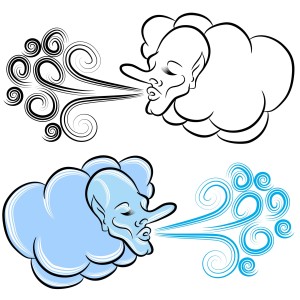
We’ve explained how home football games and fluctuating temperatures can impact crime rates, but what about something that seems a little more arbitrary, like the direction of the wind? Could a south-blowing wind or a gust from the northwest actually cause crime to spike or drop? New research suggests so.
According to two researchers out of UC-Davis, wind direction and air quality may have an impact in crime rates in larger cities. But what does the wind have to do with crime rates? Researchers say the wind’s direction on any given day can send pollutants in a certain direction, leading to a slight increase in crime in the affected area.
Wind and Crime Study
For their research, the pair of scientists looked at wind patterns and crime rates on opposite sides of major expressways in Chicago. Surprisingly, they noticed a correlation. Their findings suggest that when controlling for other factors, crime would increase marginally on the side of the freeway downwind from the expressway’s pollution source. Essentially, a south blowing wind would send auto pollution south of the expressway, and there was a slight uptick in crimes on those days compared to days when the wind wasn’t out of the north. Similar correlations were seen when the wind blew in the opposite direction.
Evan Herrnstadt, co-author of the research, said being downwind of pollution can increase a person’s irritability, which can lead to poor decisions.
“[Air pollution could make people] that much more irritable and less able to control impulses,” Herrnstadt told Fusion.net.
He added that previous studies have examined the link between air pollution and its effects on physiology, cognition and overall mental health, and they’ve all shown that pollution can have negative consequences in the brain. The pair said their findings build on previous studies.
“Our results suggest that pollution may affect cognition in ways that extend beyond impairing performance on standardized tests and may influence individual behavior in more subtle ways that previously considered,” they conclude.
They believe their findings suggest that government bodies should make air quality a greater priority in larger cities to create a safer environment for citizens.





